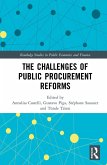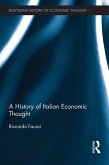Russell provides a groundbreaking critique of the orthodox position on the nature and unraveling of New Deal reforms. This exceptional work will appeal to economists, historians, and scholars interested in this vital period of American history.
Dieser Download kann aus rechtlichen Gründen nur mit Rechnungsadresse in A, B, BG, CY, CZ, D, DK, EW, E, FIN, F, GR, HR, H, IRL, I, LT, L, LR, M, NL, PL, P, R, S, SLO, SK ausgeliefert werden.









